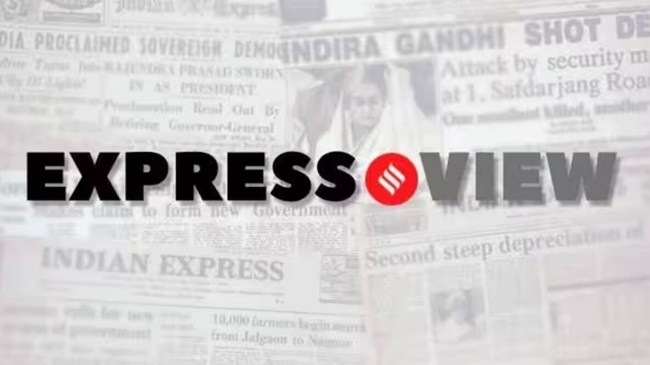Opinion Scrapping Google tax: Trump’s America & pragmatic India
This move, lowering tariffs on select items in budget, signals pragmatism, intent to seal trade deal
 The move to scrap the levy comes at a time when the US administration is exerting pressure to cut tariffs — April 2 is the deadline for the imposition of reciprocal tariffs — and amid talks between India and the US on a bilateral trade deal.
The move to scrap the levy comes at a time when the US administration is exerting pressure to cut tariffs — April 2 is the deadline for the imposition of reciprocal tariffs — and amid talks between India and the US on a bilateral trade deal. In 2016, the government had introduced an equalisation levy of 6 per cent on payments for digital advertisement services to non-resident entities exceeding Rs 1 lakh. The tax, colloquially referred to as the “Google Tax”, affected global tech giants like Google and Meta — the two firms account for a substantial share of the digital advertising market in the country. India was, in fact, one of the first countries to have introduced such a tax. In 2020, a 2 per cent equalisation levy was also imposed on e-commerce sites offering digital services. Following this, in June 2020, the US launched an investigation under section 301 of the US Trade Act 1974 on the digital services tax levied by India, specifically the 2 per cent levy. Similar investigations were also launched by the US against other countries. On January 6, 2021, the office of the US Trade Representative released the findings of its investigation. It concluded that the levy was “discriminatory, unreasonable, and burdens or restricts US commerce.” Thereafter, the Indian government did away with the 2 per cent levy from August 1, 2024. And on Monday, it moved to scrap the levy on online advertisements as part of the amendments to the Finance Bill, 2025.
The levying of such taxes is intended to ensure that multinational tech firms pay their fair share of tax to “market” countries in a “hard to tax” sector. The OECD’s Pillar One project also aimed to generate consensus across countries on taxation of the digital economy. Some experts have viewed the equalisation levy imposed by India as an “imperfect solution to bring digital transactions under tax”. Its abolition now also addresses concerns of its “unilateral nature”. Moreover, as per reports, collections through the levy were shy of just Rs 4,000 crore, with Bengaluru accounting for a sizable share of the revenue collected through this route.
The move to scrap the levy comes at a time when the US administration is exerting pressure to cut tariffs — April 2 is the deadline for the imposition of reciprocal tariffs — and amid talks between India and the US on a bilateral trade deal. On Tuesday, a US delegation, which includes the assistant US trade representative for South and Central Asia, arrived in the country for talks. These steps being taken by the Indian government — in the recent Union budget, it had also lowered the duties on items such as high engine capacity motorcycles and high-end cars that are exported by the US — suggests that it is adopting a pragmatic approach while engaging with the Trump administration, signalling its intent to move ahead with a trade deal.






